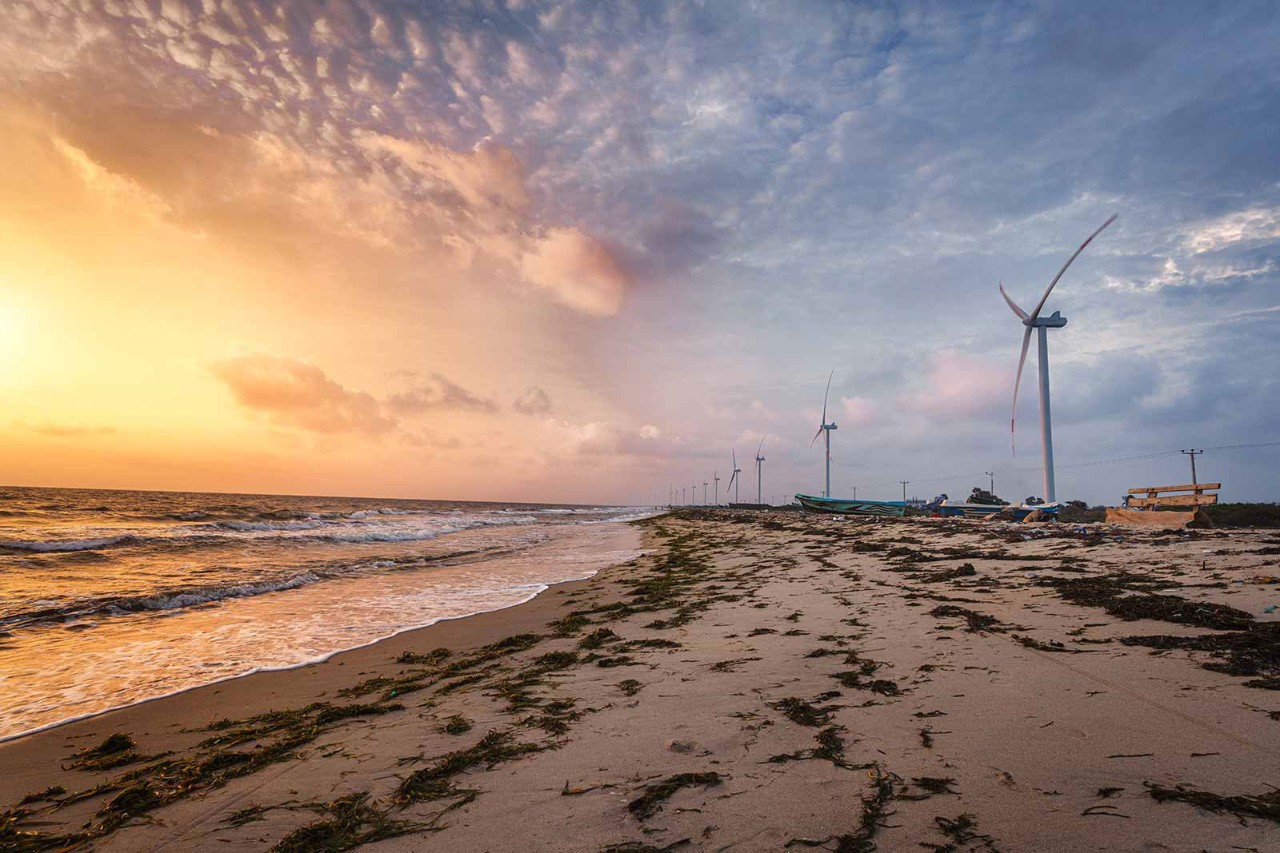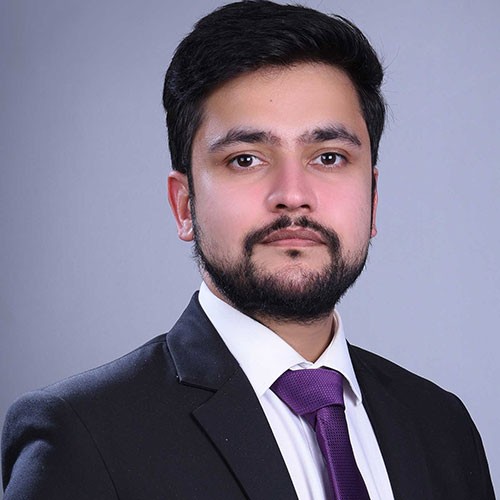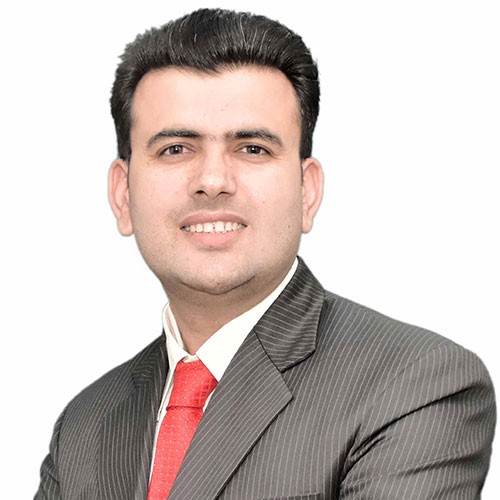
When Haitham Al Saadi FCCA joined Oman Flour Mills as CFO in August 2019, he could not have foreseen the challenges that lay ahead. Just months later, the Covid-19 pandemic broke out, fuelling a global wheat shortage and driving up prices for the commodity. This, in turn, squeezed the profitability of Oman Flour Mills, which imports wheat from around the world.
With a large proportion of the world’s wheat grown in the Black Sea area, there was inevitably further disruption in February 2022 when Russia invaded Ukraine. While wheat prices have started to normalise more recently, attacks by Houthi forces on shipping in the Red Sea have led to delayed wheat deliveries and higher insurance costs. ‘It is a very dynamic industry,’ is how Al Saadi sums up the food business. ‘And that keeps you on your toes.’
‘We are automating routine jobs to free up time to concentrate on analysis and predictive work’
Climate change is also a concern. A drought in a wheat-producing country can disturb the supply of grains and make them more expensive to buy. Meanwhile, extreme wet weather conditions have sometimes resulted in the company losing stock that is stored outside.
Power of technology
While Al Saadi clearly can’t control geopolitics or climate change, he can try to offset their impact by improving the operational efficiency of the finance team. ‘We are trying to harness technology wherever possible,’ he says of the team, which works remotely and is 100% cloud based. ‘We are trying to automate routine jobs, to free up the time of the people working in finance and the supply chain so that they can concentrate more on analysis and predictive work.’
‘The ACCA qualification gave me the confidence to engage with our auditors and challenge their observations’

Today, Oman Flour Mills is pursuing growth through a strategy of diversification. Alongside milling flour, the company operates a bakery, owns a dairy business and poultry farms, produces animal feed and aquafeed, and provides testing and certification services for suppliers of food and cosmetic products.
It is also exploring other revenue streams, including cafés and confectionery. All round, it makes for a diverse and interesting role for Al Saadi, who has more than 100 people directly and indirectly reporting to him across finance, IT and supply chain management.
Route to the top
Despite being good at maths, Al Saadi did not originally plan to become an accountant. While studying for a commerce degree at Sultan Qaboos University in Oman’s capital Muscat, he decided to major in accounting and finance in the belief that it would boost his employability prospects. He wasn’t disappointed. After university, he secured a position on the prestigious finance management programme of liquefied natural gas company Oman LNG – one of only five people to be accepted out of more than 500 applicants.
During the two-year graduate programme, Al Saadi gained what he describes as ‘a 360-degree view of accounting and finance’. He was also assigned a mentor who advised him to study for the ACCA qualification, which he completed in 2009. ‘It gave me the confidence to handle accounting complexities,’ Al Saadi recalls. ‘And it gave me the confidence to engage in dialogue with our auditors and challenge their observations.’
‘I always ask myself what went wrong and what went right in any situation and try to build on that’
CV
2019
CFO, Oman Flour Mills Company
2017
CFO, Minerals Development Oman
2015
Senior manager (finance), vice president (finance), Oman Air
2010
Senior manager (accounts), general manager (accounts), deputy CFO, Oman Shipping Company
2009
Senior cost analyst, Ooredoo
2005
Accountant, Oman LNG
After four years at Oman LNG, Al Saadi was ready to progress his career in a different sector. He briefly worked for Qatari-owned telecommunications company Ooredoo as a senior cost analyst before moving to Oman Shipping Company, where he stayed for five and a half years, working his way up to become deputy CFO. Here he had his first real taste of line management, which he found testing at first. ‘I made some mistakes, but I learned a lot from that experience,’ he says. ‘Oman Shipping helped me to understand how to work with people, how to become more flexible at times, and also when to be more decisive.’
In 2015, Al Saadi was asked to transform the finance department of Oman Air, the country’s national airline. He accepted the challenge and was quickly promoted to vice president (finance), making him the youngest VP in the history of Oman Air. At this time, he was also selected to join the national CEO programme, an initiative to develop the next generation of Omani leaders.
Through connections made on the programme, Al Saadi secured his subsequent role as CFO of start-up Minerals Development Oman. In this position, he constructed a finance department from scratch, including the accounting system, finance policies and budget. He was also involved with long-term strategic planning, which included preparing for an IPO. ‘It was an eye-opening experience,’ he recalls. After nearly two years, he left to join Oman Flour Mills, excited by the opportunity to be ‘a progressive CFO who is not only good at numbers, but who can also build something’.
Reflective leader
Alongside his role at Oman Flour Mills, Al Saadi holds board positions at five other companies. Through these he has learned to appreciate the value of corporate governance and to understand why board members ask certain questions. He also tries to hone his leadership capabilities through self-reflection.
‘In any situation I always ask myself what went wrong and what went right, and I try to build on that,’ he explains. ‘Am I perfect? No, I’m still learning. But I do know you don’t need to be the most popular person in the office, as long as people respect you.’
Al Saadi is passionate about helping others to progress, too, and counts inspiring and mentoring the Gen Z members of his team as an important area of focus. In the longer term he is drawn to the idea of teaching accounting and finance in a university, but for now feels that he still has plenty more to learn, and to offer, as a CFO.
‘I want to cement my CFO journey,’ he says. ‘I want to grow more in this field and become a world-class CFO.’
Oman Flour Mills
1,100+
Employees
15+
Entities in the group
OMR100m (US$259m)
Revenues (2024)
800 metric tons
Daily flour milling capacity
1977
Year of foundation



